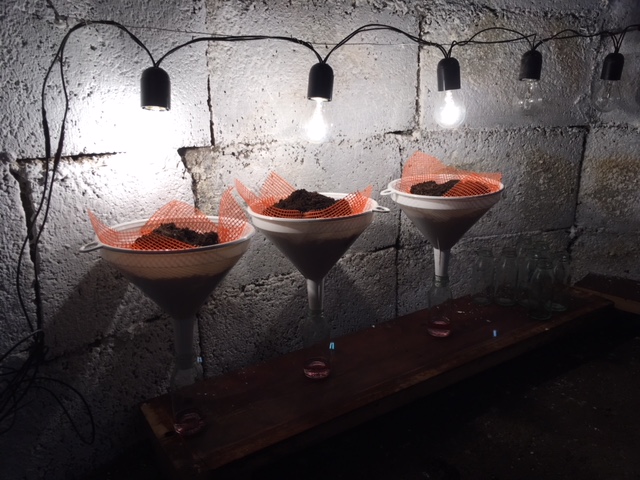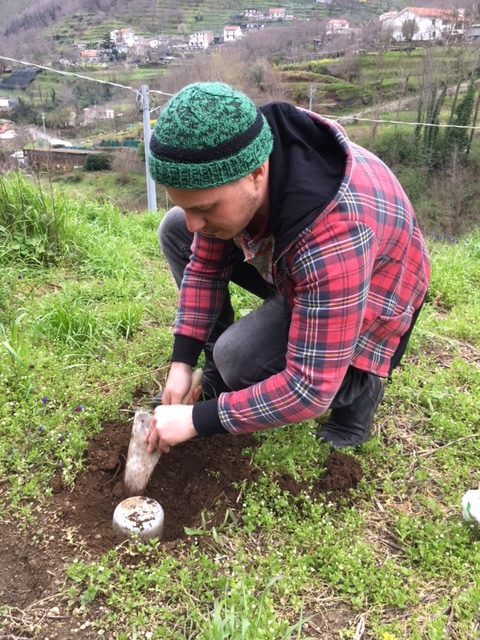During the beginning of the year 2018, the ACARBIO team in collaboration with CREA (consiglio per la ricerca in agricoltura) and local farmers, started a project to investigate the best technique to cultivate and manage the Re Fiascone Tomato on the terraces of the Amalfi Coast and surrounding areas.
The study is conducted by two ACARBIO members, Valeria Fattoruso, entomologist, and Lorenz Frei, landscape architect, with the support of the agronomist Rosa Pepe of CREA and Stefania A. from University of Bolzano, in the garden terraces of ACARBIO, located in Polvica, Tramonti.
With two different methods, QBS (biological quality of soil index) which uses insects as biological indicator, and chemical soil analysis, which implies laboratory measurements of PH, nitrogen content, and enzyme activity, the main idea is to understand Tramonti’s actual state of the soils. At the end, a better cultivation in the future, could become a key factor to promote the farming and counteract the rural depopulation of this area.
Valeria and Lorenz were working on the QBS analysis during this spring, gathering soil from different points of the terraces and analyzing the insects present in it. Valeria explains the relevance of the existence of certain species of insects in the soil:
“There are species that are very specialized, sensitive to environmental changes and contamination, so if we find in a sample of soil this type of insects, it could mean that the soil is not polluted and has a good quality. However, there are other species that can survive even if the environment is contaminated, therefore if these insects are present in a sample, but not the others, the soil must not be so good”
This project is an opportunity to develop an experimental design, to promote alternative ways to calculate the soil quality, discover something new about the biodiversity of the area, and determine the impact of farming and gardening of tomatoes. This can also involve the local communities, to raise their awareness on these topics, and certainly adds value to the Re Fiascone Tomato.
Valeria Fattoruso explains the project in this short video:



